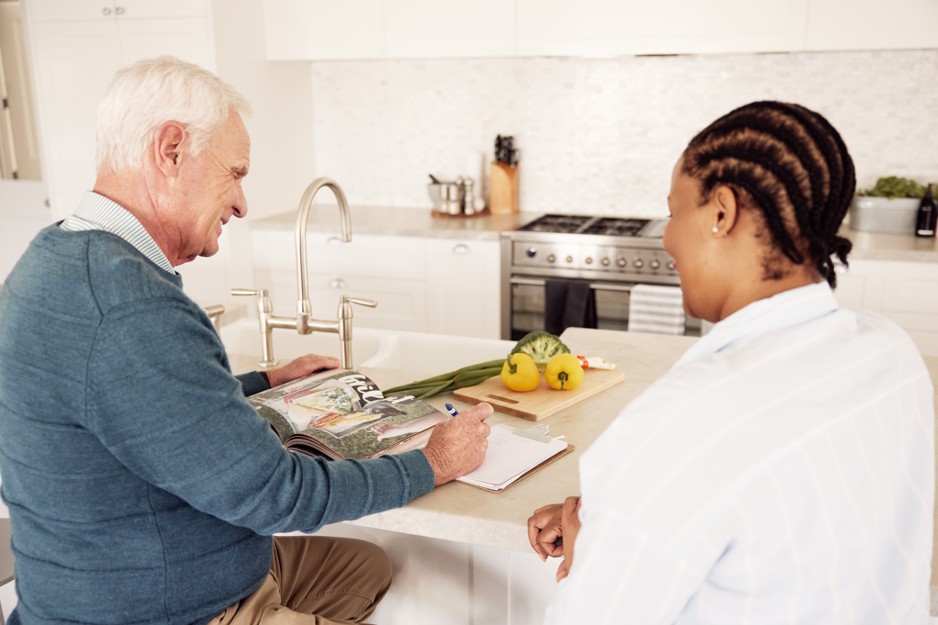14.2.2023

A study published in the Public Library of Science (PLOS medicine) found that millions of people who have dementia globally experience worsening brain health during winter months. The study found a 5% decline in cognitive function during the winter months and the study authors recommended that more diagnosis should take place at wintertime, as this is when the symptoms are more evident.
This evidences the seasonal variation related to light exposure, vitamin D supplementation and other hormonal changes. It also demonstrates the negative impact of reduced social activities in winter months.
Isolation and loneliness can affect anyone at any stage of life. You can feel lonely, even though you are surrounded by people. Loneliness is described as the perception of lacking the valuable relationships an individual may crave. This measure is different for different people. Older people have been reported to be more at risk of suffering chronic loneliness, as they face difficult life events that typically occur in later life. Such as:
Loneliness and Health
Loneliness has been shown to be as negative on overall health as Smoking. Some of the health risks associated with loneliness include:
A study published by the Journal of Neurology, Neurology, Neurosurgery and Psychiatry (2012), suggested that older individuals who feel lonely are more likely to develop dementia.
Preventing Loneliness and Isolation in the Elderly
Most elderly people rely on relatives and friends for social contact. Organising a family rota to stay in touch with your elderly/isolated relatives is a great way to help your loved one maintain social interaction.
Social circles
Day centres, clubs and societies can offer activities, support and socialisation for the elderly.
Home care/companionship services
In home carers can help with chores, provide practical support and companionship. Accessing help and assistance early could help your loved one stay at home and maintain independence for longer.
Travel
There are holidays specifically designed for single travellers over the age of fifty. A trip could help your loved one to gain new experiences and meet like-minded people.
Offering lifts to loved ones and helping them access public transport can help them stay socially active and independent.
Four – legged Friends
A pet can be an extraordinary source of companionship and love. Just stroking them can decrease stress and increase wellbeing. A dog could also encourage your relative to stay active and maintain a good routine.
Encourage Hearing and Vision Tests
Hearing and vision impairment can make social interaction more difficult. Encouraging regular check-ups and ensuring that glasses and hearing aids are maintained and in good working order, will help to boost your loved ones confidence in social situations and enhance their experience.
Silver surfing
Social media can help your loved one to stay connected with friends and family. Using technology to share photos, voice notes and facetime, is a great alternative if circumstances prevent a physical visit.
A computer course could be a great way to make new friends and develop useful skills too.
Never too old to learn
There are lots of courses for people of any age. The University of the Third Age is specifically tailored to provide courses and further education for the over 50’s.
Dining together
Opportunities to dine with others provides the opportunity to socialise and helps to ensure your loved one continues to eat well and get the nutrition they need.
Feel good foods
Food plays a huge part in how we feel, and research has shown that people experiencing chronic or long term loneliness have a lower intake of protein, fruits and vegetables in their diet. Longer term loneliness also has an effect on appetite, from a lack of motivation to cook and eating less, to higher consumption of unhealthy foods and alcohol.
Loneliness can affect sleep and energy levels, so having a balanced and enjoyable diet is important. Taking the time to prepare a nice meal, is one of the simplest and nicest ways to show care.
Research has found that feelings of social warmth could be sparked by experiences of physical warmth. Even holding a glass or mug of a hot drink can make someone more trusting and generous towards others.
Create a nurturing environment
The absence of touch can be a significant factor in loneliness. Make your home a nurturing sanctuary that appeals to your senses in other ways. Invest in tactile soft furnishings like comfy cushions and cosy blankets. Scented candles that smell calming or uplifting are also a good way to nourish your senses. Have bright or uplifting visual mementoes around you like inspiring photographs or paintings that you like, evoking good times and happy memories. Bring nature into your home with flowers and plants. Peace lilies, Boston Ferns and Gerbera Daisies are all great for relieving stress and detoxifying the air.
Do something different
When you have lots of time on your hands, try filling it with new things. What hobbies can you start or old ones you can take up again? Are there any local clubs or societies you can join? If leaving the house is difficult you could find an online group that matches your interests. Actively engaging in something is different from distracting ourselves from feeling lonely; for example mindlessly watching TV. Meeting new people and learning new things can really make a difference.
Get Physical
Support your loved one to achieve 30 minutes of exercise at least 5 times a week. This can be walking, gardening or chair based exercises if mobilising is difficult. You can exercise in a 30 minute chunk or 3 lots of 10 minutes, or 15 daily episodes for 2 minutes!
Where to start?
References
https://www.marmaladetrust.org/
https://socialreport.msd.govt.nz/social-connectedness/loneliness.html
https://swa.govt.nz/assets/Publications/reports/Short-Report-V3.pdf
https://www.healthnavigator.org.nz/health-a-z/l/loneliness/
https://pubmed.ncbi.nlm.nih.gov/23232034/


Sign up with your email address to recieve news and updates